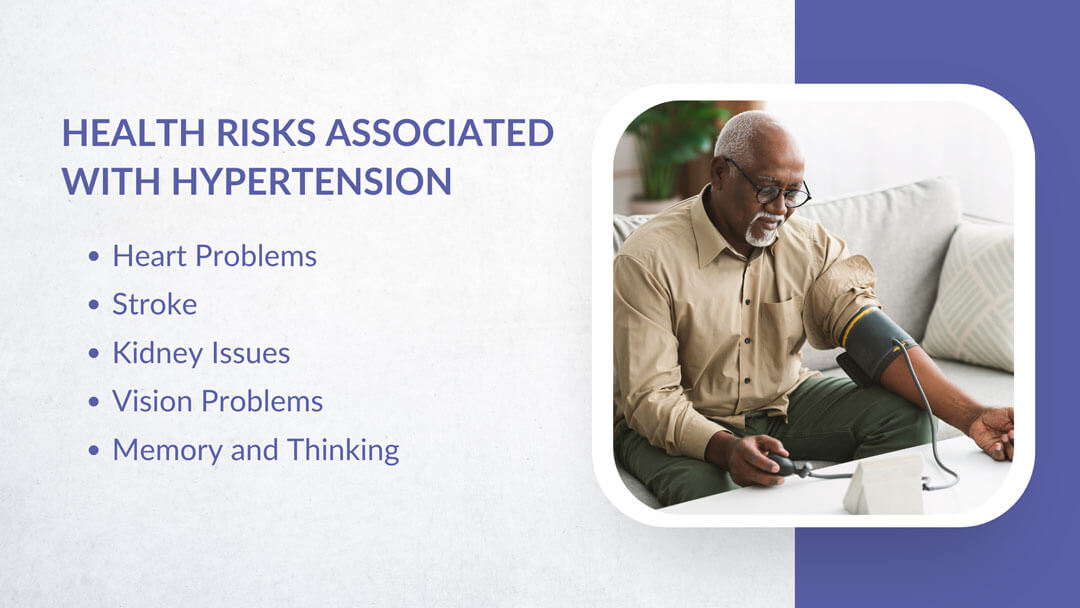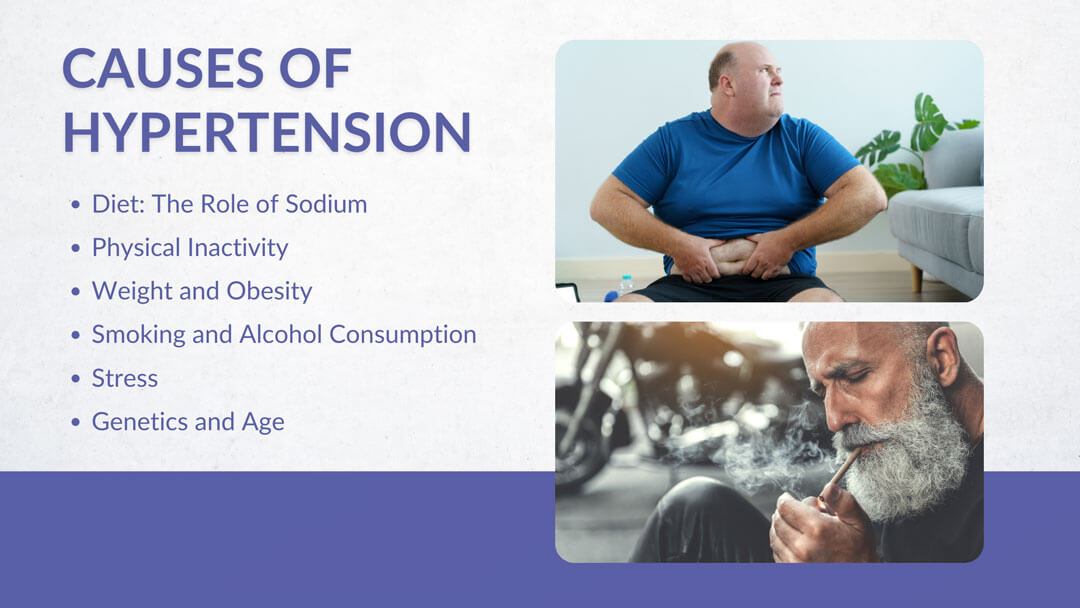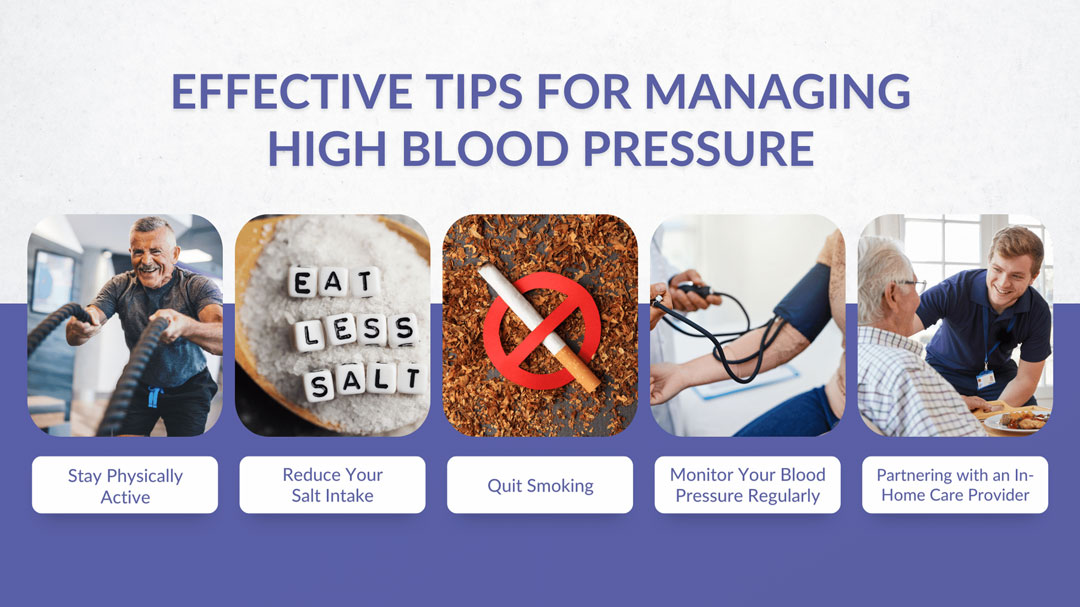Heart Health: Tips for Managing Hypertension

As we age, maintaining heart health becomes increasingly crucial. High blood pressure, or hypertension, is a significant threat to this vital organ. Hypertension occurs when blood exerts excessive force against the walls of blood vessels, leading to potential artery damage. This condition can result in serious health issues such as heart attacks, strokes, heart disease, kidney problems, and even vision loss.
Table of Contents
The Silent Nature of Hypertension
Many seniors may be unaware they have high blood pressure, as it often presents no noticeable symptoms. Regular blood pressure checks are essential for early detection and management. Consistently high readings, specifically 130/80 or above, indicate hypertension. While medication can help manage blood pressure, lifestyle changes are equally vital in controlling it.
Health Risks Associated with Hypertension

Hypertension, often referred to as the “silent killer,” can lead to numerous severe health complications, especially for seniors. Even without noticeable symptoms, high blood pressure can wreak havoc on various organs and systems within the body. Understanding these risks is crucial for effective management and prevention. Below, we delve into the significant health dangers posed by hypertension and why it’s essential to keep your blood pressure in check.
Heart Disease
High blood pressure can cause the arteries to harden and thicken, leading to heart disease or heart failure. Due to increased workload, an enlarged heart may struggle to supply the body with sufficient blood.
Stroke
Hypertension can lead to blood vessels in the brain bursting or becoming blocked, resulting in a stroke. This can cause long-term disability or even death.
Kidney Damage
The kidneys filter waste from the blood, but high blood pressure can damage the blood vessels within them, impairing their function and potentially leading to chronic kidney disease or kidney failure.
Vision Loss
High blood pressure can damage the blood vessels in the eyes, causing vision problems or blindness. This condition, known as hypertensive retinopathy, often progresses without warning.
Cognitive Decline
Evidence suggests that high blood pressure contributes to cognitive decline and the development of dementia in seniors, significantly impacting daily life and overall well-being.
Causes of Hypertension

Hypertension, or high blood pressure, occurs when the force of blood against the walls of your arteries is consistently too high. This condition can develop due to various factors, many of which are within your control. Understanding these causes can help you take proactive steps to manage your blood pressure effectively.
High-Sodium Diet
A diet high in sodium is one of the most significant contributors to hypertension. Sodium causes your body to retain water, which increases the volume of blood in your bloodstream and raises blood pressure. Processed foods, canned soups, and fast foods often contain high sodium levels. Reducing your salt intake by cooking at home with fresh ingredients and choosing low-sodium alternatives can help manage your blood pressure.
Lack of Physical Activity
Physical inactivity is another major risk factor for hypertension. Regular exercise helps maintain a healthy weight, improves heart function, and reduces the pressure on your arteries. Sedentary lifestyles can lead to weight gain and increased stress on the cardiovascular system. Engaging in at least 30 minutes of moderate exercise, such as walking, biking, or swimming, can significantly lower your blood pressure.
Being Overweight
Carrying excess weight puts additional strain on your heart and blood vessels, increasing your risk of developing hypertension. Fat tissue, especially around the abdomen, requires more blood supply, which means your heart has to work harder to pump blood throughout your body. Losing weight through a combination of a healthy diet and regular exercise can help reduce blood pressure and improve overall health.
Smoking
Smoking damages the lining of your arteries, causing them to narrow and harden, which raises blood pressure. Nicotine in cigarettes also stimulates your body to produce adrenaline, which makes your heart beat faster and increases blood pressure. Quitting smoking can improve your cardiovascular health and significantly reduce your risk of hypertension and other related diseases.
Excessive Alcohol Consumption
Drinking too much alcohol can raise your blood pressure. Alcohol can affect the balance of calcium, magnesium, and potassium in your body, which are essential for maintaining healthy blood pressure levels. Additionally, alcohol can contribute to weight gain, further exacerbating hypertension. Limiting alcohol intake to moderate levels—up to one drink per day for women and up to two drinks per day for men—can help manage blood pressure.
Chronic Stress
Chronic stress can lead to temporary spikes in blood pressure and may contribute to long-term hypertension if not managed properly. Stress causes your body to produce hormones like cortisol and adrenaline, which increase heart rate and constrict blood vessels. Finding healthy ways to manage stress, such as through mindfulness, meditation, exercise, or hobbies, can help control your blood pressure.
Genetics
Family history plays a significant role in the development of hypertension. If your parents or close relatives have high blood pressure, you are more likely to develop it as well. While you cannot change your genetic makeup, being aware of your family history can prompt you to take preventive measures early on, such as regular monitoring and adopting a heart-healthy lifestyle.
Age
The risk of hypertension increases with age. As you get older, your blood vessels lose some of their elasticity, which can contribute to higher blood pressure. Regular check-ups and monitoring become increasingly important as you age to detect and manage hypertension early.
Effective Tips for Managing High Blood Pressure

Managing high blood pressure is essential for maintaining overall health and preventing the severe complications associated with hypertension. While medication can play a role, lifestyle changes are a powerful way to control blood pressure naturally. Here are some practical and effective strategies to help you keep your blood pressure in check.
Stay Physically Active
Aim for at least 30 minutes of moderate activity five days a week. Walking, jogging, biking, swimming, dancing, or participating in senior fitness programs are excellent options. Combining cardio and strength training helps keep your body fit and aids in weight management, which is crucial for reducing high blood pressure. Consult your doctor for personalized exercise and weight management recommendations.
Reduce Your Salt Intake
Excessive salt consumption can significantly contribute to high blood pressure. Aim to keep your sodium intake around 1,500 mg or less per day. Be vigilant about reading food labels and serving sizes. Opt for canned products labeled “no salt added,” “unsalted,” or “low sodium.” Adopt a well-balanced diet rich in fresh or flash-frozen fruits and vegetables, lean meats, and whole grains. Use herbs, spices, and other salt-free seasonings to flavor your meals.
Quit Smoking
Quitting smoking can be challenging but immensely beneficial for your health. Nicotine constricts blood vessels, reducing blood flow and increasing the risk of plaque buildup in arteries. Combined with high blood pressure, this significantly raises the risk of stroke or heart attack.
Monitor Your Blood Pressure Regularly
Regularly checking your blood pressure can help track its status and the effectiveness of lifestyle changes. Note your activities during these checks, such as exercising, sleeping, or feeling stressed, and share these findings with your doctor for better management.
Partnering with an In-Home Care Provider
An in-home care provider can significantly help manage your heart health. They can remind you to take your blood pressure medication, assist in creating and preparing a low-sodium diet, and encourage regular physical activity. Additionally, having a caregiver provides companionship and support as you navigate these lifestyle changes. For more information and to schedule a free consultation, contact Always Best Care of Milwaukee at (262) 668-8139 to learn more and schedule your free consultation.





